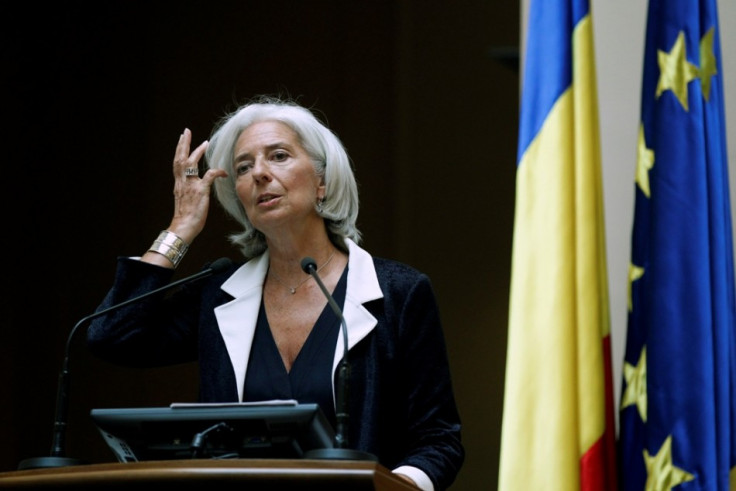IMF Chief Lagarde Advocates Caution on Withdrawing Stimulus Measures

International Monetary Fund (IMF) Managing Director Christine Lagarde has said central banks in advanced economies should exercise caution in withdrawing their stimulus measures as an early exit might hurt global economic and financial stability.
Speaking at the US Federal Reserve's Jackson Hole Economic Symposium, Lagarde noted that unconventional monetary policies (UMP) taken by central banks during the financial crisis have "bought time and space" for economies to carry out reforms.
She also urged central banks to use the precious time wisely to understand the impact of the policies.
"We need to work better together to understand more fully the impact of these unconventional policies-local and global-and how that affects the path of exit," she said in her speech.
"And, above all, we must use the time wisely and not waste the space provided by unconventional policies. Global policymakers-all policymakers, within countries and across countries-have a responsibility to take the full range of actions needed to restore stability and growth, and to reduce imbalances."
Slowdown in Emerging Markets Could Affect Global Growth
The crisis in the US and the eurozone has revealed the extent to which the world is interconnected, Lagarde said. Unconventional monetary policies have helped these economies to overcome the crisis and helped prevent a collapse of the global financial system.
The Quantitative Easing in the US, the Large Scale Assets Purchases in the UK and the European Central Bank's Long-Term Refinancing Operations and Outright Monetary Transactions were such policies adopted to revamp the respective economies.
At present, advanced economies such as the US are planning to withdraw their stimulus measures. The Fed expects to scale back its monthly purchases of bonds later this year. An early exit poses the risk of a slowdown in emerging markets, which in turn would pull back growth everywhere, according to Lagarde.
Amid concern that the US will cut down its $85bn monthly stimulus, international investors are increasingly looking to sell their emerging-market assets. The development has resulted in a plunge in currency and share prices in emerging economies.
Having lost almost a fifth of its value during 2013, the Indian rupee has been the worst performing among its major Asian peers. It has fallen by about 16% against the US dollar since May.
Brazil's real has also been hit by the US move and the currency is heading to a five-year low against the US dollar. It has fallen 16% against the dollar since May.
'No Rush to Exit'
Lagarde said it is too early to exit the UMP at present, and the central banks should plan for an orderly exit of the measures.
"I do not suggest a rush to exit. UMP is still needed in all places it is being used, albeit longer for some than for others. In Europe, for example, there is a good deal more mileage to be gained from UMP. In Japan too, exit is very likely some way off," she said.
"We need to watch whether the benefits of UMP are subject to diminishing returns. Together, we need to analyse whether the financial side-effects get worse over time."
She added that the IMF is also looking at the "spillover effects" on other countries, such as rising capital flows, increases in asset prices, corporate leverage, and foreign exchange exposure seen in some emerging market countries.
© Copyright IBTimes 2025. All rights reserved.






















